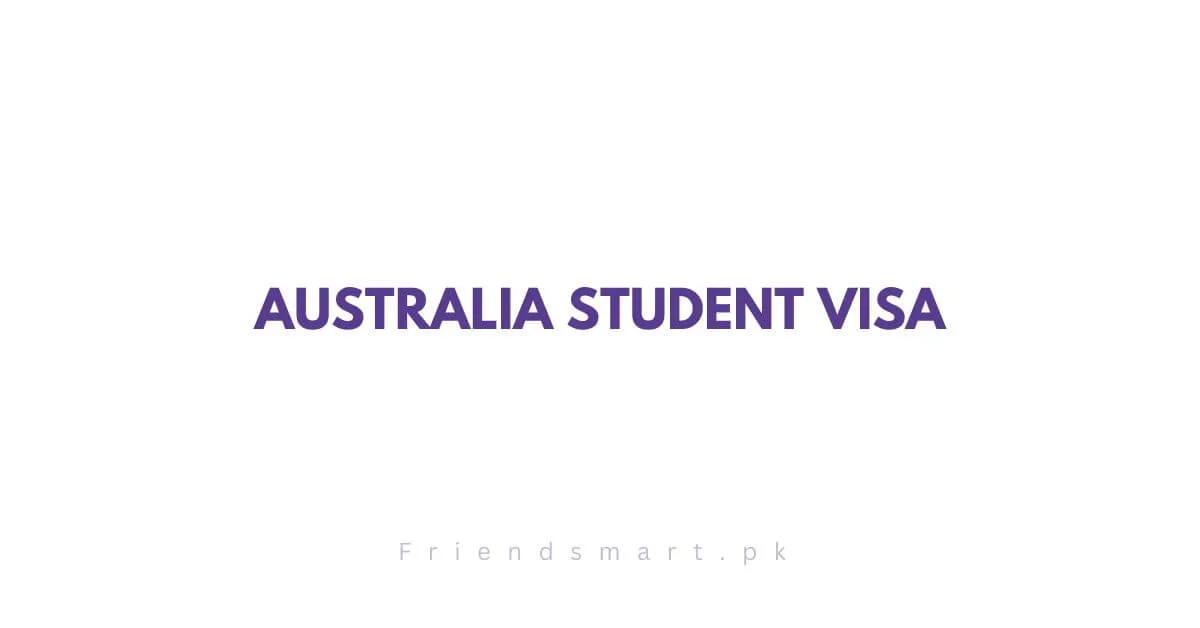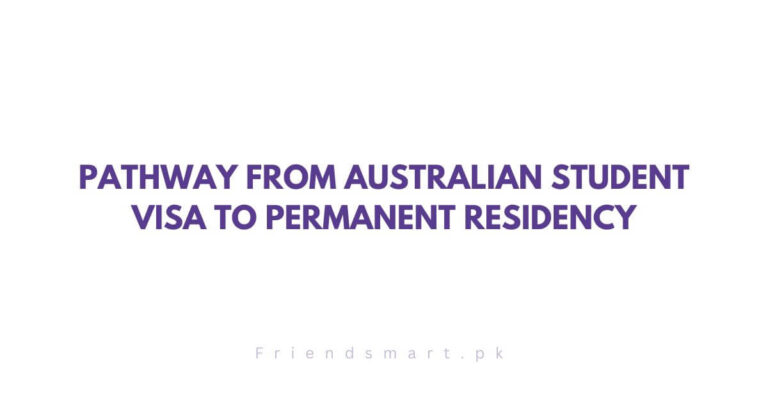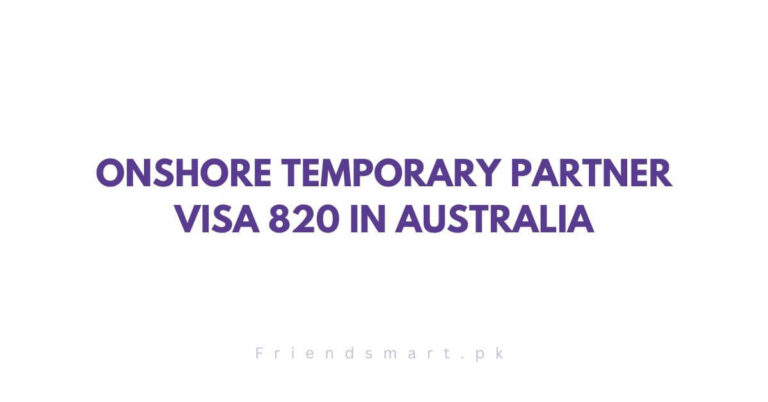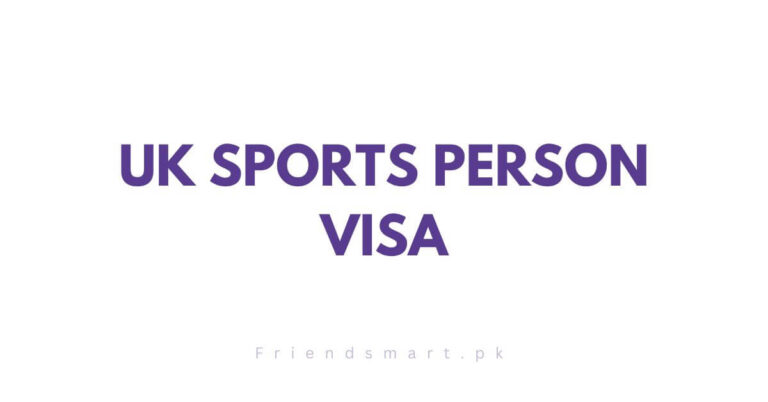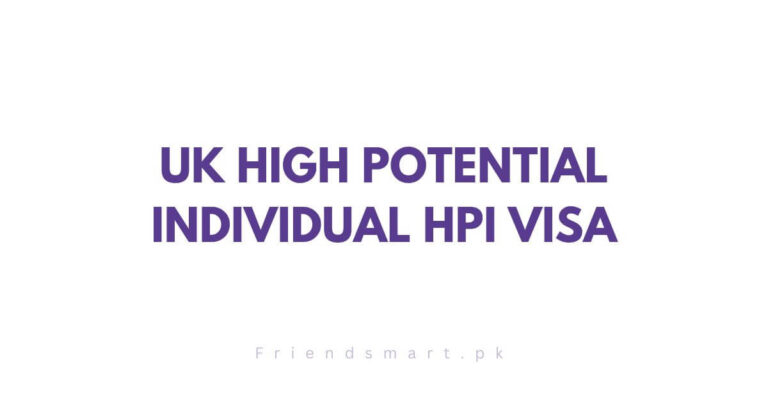Australia Student Visa 2024 – Apply Now
Visas for Australian students are accessible to foreign nationals who wish to pursue higher education in the country. Applicants seeking subclass 500 visas are required to adhere to the regulations set forth by the Immigration Office.
What Are the Requirements for a Student Visa in Australia?
For an Australian student visa (subclass 500) application you must submit these documents:
- A passport is required. Applicants for an Australian student visa must present a valid passport that has been issued by their country of origin or current domicile. You might also be expected to provide copies of your national identification card and driver’s license.
- Recent biometrics and photographs: Additionally, recent identification photographs and biometrics are required. Should the Immigration Office require your biometrics, you will be notified.
- Form for Student Visa Application: Applications for student visas must be filled out, signed, and include all necessary supporting documentation.
- Requirements for Age: Pre-schoolers are not permitted to file for subclass 500 visas. Furthermore, there are specific age requirements for students to enter primary, secondary, or tertiary education:
- Students must be less than 17 years old when they enroll in ninth grade.
- Students must be less than 18 years old when they enroll in Grade 10.
- Individuals who are under the age of 19 at the start of year 11 of education.
- Students who are less than 20 years old at the start of grade 12.
- Evidence of Study Program: An applicant for an Australian student visa is required to include a Confirmation Letter of Enrollment (CoE) that details all the courses they intend to enroll in throughout their academic program. Your CoE must be submitted before the issuance of your visa. It is your responsibility to ensure that you have a legitimate CoE throughout your stay, as your student visa may be revoked if you fail to do so before your CoE expires.
- If you are enrolled in multiple study courses, you are required to submit all CoE associated with those courses. You will have your visa valid solely for that academic course if you fail to do so. You may enroll in two or more courses, provided that there is a minimum two-month separation between them and one course must be completed before the other. You are required to submit a letter of support instead of a CoE if you fall into one of the following categories:
- A student supported by the Department of Foreign Affairs and Trade of Australia.
- A pupil with Department of Defense sponsorship.
- You are required to submit an Acceptance Advice of Secondary Exchange Student Form if you are a secondary exchange student.
- To fulfill the thesis requirement of remaining in Australia, postgraduate research students must furnish an official letter from their institution of higher education.
- If you are enrolled in multiple study courses, you are required to submit all CoE associated with those courses. You will have your visa valid solely for that academic course if you fail to do so. You may enroll in two or more courses, provided that there is a minimum two-month separation between them and one course must be completed before the other. You are required to submit a letter of support instead of a CoE if you fall into one of the following categories:
- Consent of parents: When traveling to Australia with a child younger than 18 years old and one of the parents is not accompanying the child, a parental consent form must be included with the visa application.
- Civil Records: Documents including proof of your relationship with a companion and your birth certificate, marriage certificate, divorce papers, and adoption papers are required. Additionally, you are required to present a certificate attesting to the name change if you have undergone one.
- Medical insurance: Students are required to possess adequate health insurance to apply for an Australian visa. Student applicants and their family members must have Overseas Student Health Cover (OSCH) coverage. Students must have insurance that is applicable from the moment they arrive in Australia, rather than from the commencement of their courses. Students are required to obtain OSHC from an authorized provider and subsequently remit payment for the insurance policy. Applicants lacking health insurance may face potential denial of entry into Australia. The following may qualify students for an exemption from health insurance:
- They are pupils from Norway who are beneficiaries of the Norwegian National Insurance Scheme.
- They are a student from Sweden who is under Kammarkollgiet’s protection.
- They are Belgian students, by Australia’s reciprocal health care agreements.
- Evidence of Financial Capacity. You must provide:
- Sufficient funds to cover all living expenses, including tuition, for one year in Australia, as well as travel expenses (including funds to support family members).
- Evidence that the applicant will receive financial support from family members throughout the education program. For unmarried students, the annual income of family members must be a minimum of AUD 62,222; for students accompanied by other family members, it is AUD 72,592.
- For exchange students, the Acceptance Advice of Secondary Exchange Student Form.
- A letter of endorsement from the Department of Defence or the Australian Department of Foreign Affairs and Trade.
- English Language Certification.
- Character Requirements. To pursue higher education in Australia, prospective students must satisfy the character requirements established by the Australian government.
- Genuine Temporary Entrant. Students are required to submit a written declaration of intent to study provisionally in Australia. Importantly, the requirement of being a genuine temporary entrant demonstrates to the Immigration Office that you have no intention of overstaying your visa once it has expired.
- Employment History.
- Additionally, documentation verifying your employment is required. This may consist of a recent contract or if you are currently employed, a current contract; you may also submit an updated CV. Should you have completed your studies up until this point, a copy of your transcripts may be submitted. Secondary exchange students and those sponsored by the Department of Defense or the Department of Foreign Affairs and Trade are exempt from this requirement.
- Draft 157N. This form is mandatory for students who are in their youngest years of age or lower. They are required to submit a nomination form (see below) to bring a guardian to Australia.
- Australian Values Statement: Prospective Australian students are required to affix their signature to a values statement that pledges their adherence to all Australian laws and values.
- Authorized Recipient Form: Regardless of who is assisting you with your application, this form must be submitted. If you are receiving assistance from a migration agent, please complete this form. Additionally, you may compose and upload a letter to your ImmiAccount detailing your situation and the identity of the assistance provider.
Check Also: Australia Work Permit Visa 2024 – Latest Updates
English Language Certification Requirements:
Students may be required to submit evidence of sufficient knowledge of the English language:
| Language Test Providers | Minimum Acceptable Score |
| International English Language Testing System (IELTS). | 5.5 |
| Test of English as a Foreign Language (TOEFL)- internet-based test. | 46 |
| Cambridge English Advanced Certificate. | 162 |
| Pearson Test of English Academic (PTE). | 42 |
| Occupational English Test | B for each tested aspect |
These students may be exempted from the language requirement:
- Citizens of the Republic of Ireland, the United Kingdom, Canada, or New Zealand.
- Applicants who have received sponsorship from the Department of Defense or the Department of Foreign Affairs and Trade.
- Students are enrolled in secondary exchange programs.
- Candidates who are currently enrolled in an officially registered educational course as applicants.
- Applicants who are enrolled in an English Language Intensive Course for Overseas Students as a standalone program.
- Individuals who are enrolled in a course taught in a language other than English.
- Applicants who have completed a minimum of five years of academic study in the Republic of Ireland, the United Kingdom, the United States of America, New Zealand, or Canada.
- Applicants who held a student visa and, at least two years before their application, completed one of the following: the Senior Secondary Certificate of Education in Australia; or an accredited course of study (in English) that resulted in a qualification at level IV or higher from the Australian qualifications framework.
Benefits of an Australia Student Visa:
- Access to High-Quality Education: Australia is renowned for its world-class education system, which includes multiple institutions and colleges offering a diverse choice of programs and courses. International students can receive a high-quality education and study from famous scholars and specialists in their fields.
- Wide Range of Study Options: Australia has a wide choice of learning alternatives, including undergraduate, postgraduate, vocational, and English language courses. International students can select programs that match their interests, career goals, and academic objectives.
- Work Rights: Australian student visa holders are normally allowed to work part-time throughout their studies (up to 40 hours per fortnight) and full-time during scheduled course breaks. This allows students to obtain useful work experience, earn money to cover their living expenses and improve their employability.
- Pathway to Permanent Residency: Studying in Australia can give overseas students a road to permanent residency through a variety of immigration schemes, including the General Skilled Migration (GSM) program, the Temporary Graduate visa (subclass 485), and employer-sponsored visas. Completing a qualification in Australia may raise eligibility for skilled migration and improve the chances of getting permanent residency.
- Multicultural Environment: Australia is well-known for its multicultural culture, which welcomes people of many cultural origins and ethnicities. International students have the opportunity to connect with students from all around the world, broadening their perspectives and developing cross-cultural communication skills.
- Safe and Supportive Environment: Australia is regarded as a safe and inviting destination for international students, with rigorous legislation in place to safeguard their rights and well-being. To assist students in adjusting to life in Australia, educational institutions offer support services such as orientation seminars, academic advising, counseling, and lodging.
- Opportunities for Research and Innovation: Australia leads the way in research and innovation in a variety of fields, providing opportunities for international students to participate in cutting-edge research projects, collaborate with leading researchers, and contribute to advancements in their respective fields.
- Post-Study Work Opportunities: After finishing their studies, international students may be eligible to apply for post-study work visas, such as the Temporary Graduate visa (subclass 485), which allows them to get work experience in Australia for a limited time. This gives them significant opportunities to use their talents in a professional setting and investigate career choices in Australia.
- Quality of Life: Australia has a good standard of living, with contemporary infrastructure, healthcare facilities, social amenities, and recreational options. While studying abroad, international students can take advantage of a dynamic lifestyle, gorgeous landscapes, outdoor activities, and cultural attractions.
- Global Recognition: Employers, academic institutions, and professional groups around the world recognize and appreciate qualifications gained from Australian educational institutions. Graduates from Australian universities and colleges are highly sought after in the global employment market, which improves their career opportunities and mobility.
How to Apply for a Student Visa in Australia?
Students have to follow this application procedure:
- Create your ImmiAccount.
- Assemble the required documents.
- Pay the visa fee for subclass 500.
- Apply for the subclass 500.
Create Your ImmiAccount:
To submit an online visa application, one must utilize an ImmiAccount. Create an account if you do not already have one, and then begin the application process. After establishing an ImmiAccount, complete the student visa application form.
Assemble the Required Documents:
Commence compiling the necessary documentation. Each record must be written in English or have been translated into English. How to certify your documents is detailed here.
Pay the Visa Fee for Subclass 500:
A student visa to Australia is valued at AUD 630. Nevertheless, the application fee may undergo modification contingent upon the presence or absence of dependents throughout the academic program. Timely payment of the visa fee is of the utmost importance. Your application will not be considered by the Australian authorities until you have paid the visa application charge. The fee for online applications is submitted via ImmiAccount.
Apply for the Subclass 500:
Once all required documents and the visa fee have been submitted, the application for a student visa can be processed. Upon concluding, the Immigration Office will provide written notification to you regarding their determination.
How Long Is a Student Visa Valid For in Australia?
Typically, an Australian student visa is effective for a maximum of five years. If the duration of your studies is shorter, your visa will remain valid for the entire course. Depending on the circumstances, you might qualify for a visa extension.
Australia Student Visa Processing Time:
Higher education processing typically takes four months. Nevertheless, the duration of the processing procedure for a student visa can range from three months to one year. It will be contingent upon the reason for your study in Australia.
Australia Student Visa Cancelation:
If a student fails to comply with the following visa requirements, the Department of Foreign Affairs may revoke a 500 student visa:
- Restricted level of labor. Students are restricted to a predetermined number of hours of labor.
- The course prerequisites. Visa holders are obligated to maintain enrollment in their course of study, attend classes regularly, and ensure that there are no more than two-month pauses between courses, barring exceptional circumstances.
- Maintain your enrollment in the same course. Modifications to a student’s course of study require the minister’s authorization. In addition, students are not permitted to alter their thesis or research topic without the minister’s permission.
- Carry current insurance. While in Australia on a student visa, non-citizens are required to maintain health insurance coverage that is legitimate for the duration of their visa.
- Carry a valid CoE. Students are responsible for maintaining an accurate confirmation of enrollment. Colleges and universities will issue their COEs.
- Preserve academic arrangements. Those who have a visa and have minors with them must provide suitable educational resources for the kids.
- Possess valid welfare documentation. Students who are under the age of 18 are required to have sufficient welfare provisions or be accompanied by a student guardian.
- Modify personal information. After obtaining their visa, students are required to provide their educational institution with their Australian address within seven days of their arrival. Students must amend their information in the event of an address change.
- Avoid any disruption. Students are prohibited from participating in any activities that have the potential to incite violence, disruption, self-injury, or harm to others. An instance of such conduct entails participation in extremist organizations.
- Satisfy the requirements for the visa. To maintain their status, visa holders are required to satisfy the identical criteria that were in effect at the moment the visa was issued.
- No Additional Stay (8534). While in Australia, you are not permitted to reapply for a visa unless it is a subclass 485 or 590 visa or a protection visa.
- No Additional Stay 8535. Unless you are seeking protection or have support from the Commonwealth or a foreign government, you are not eligible to apply for a visa.
Can I Stay in Australia After My Student Visa Expires?
If you wish to extend your stay beyond the duration permitted by your student visa, you may consider the following alternative visa options:
- Visa for Temporary Graduates—subclass 485. This visa is available to students who have completed specific qualifications in Australia and held a previous student visa subclass 500 within the last six months.
- Subclass 476 Skilled Recognition Graduate Visa. This subclass of visa is appropriate for graduate engineering students attending a reputable institution.
Can I Get a Permanent Residency With a Student Visa in Australia?
Permanent residency is not possible for students traveling on student visas. Students who wish to obtain permanent residency must apply for a perpetual skilled work visa. Other than that, students are required to depart Australia once their student visa expires.
Can I Work With a Student Visa in Australia?
A 500 student visa permits a maximum of forty hours of work per two weeks. You may begin working before the issuance of your visa, not when your course concludes.
Am I Allowed to Change My Study Course?
You are not permitted to alter your study program, thesis, or research topic while in possession of a study visa 500 without the Minister’s permission. To modify your study course, please complete and submit Form 1221 via email to the appropriate individual responsible for the matter. The subject line of the communication should read “Evaluation of 8203/8204.”
Can I Travel Abroad With a 500 Student Visa?
Visa 500 holders are permitted unrestricted travel for the duration of their visa’s validity.
Can My Family Members Come With Me on a Visa 500?
Family members can accompany international students if they are:
- An equivalent companion.
- A dependent child under the age of eighteen, which includes the offspring of a partner.
Your minor is required to apply for their visa once they reach the age of 18. Additionally, members of your family must meet the character and health prerequisites.
Students Under 18 in Australia:
Under-18 international students in Australia are responsible for providing for their welfare until they reach adulthood. Welfare arrangements ensure that minor pupils are attended to by appropriate individuals or have sufficient care provisions established.
For welfare arrangements, you must do one of the following:
- Have a guardian for your pupil. A relative older than 21 may serve as a parent, lawful guardian, or student guardian.
- Establish a Confirmation of Appropriate Accommodation and Welfare (CAAW) arrangement. Welfare provisions must be approved by your educational institution unless you are participating in a secondary exchange program.
- Submit your Secondary Exchange Student Acceptance Advice.
- Possess welfare arrangements authorized by the appropriate minister. If you are a student of defense or foreign affairs.
Your welfare arrangement must remain in effect until you reach the age of 18, irrespective of whether you reach that age before commencing your studies. Australia prohibits the entry of minors unless they have made appropriate arrangements for their care.
The minimum period of welfare provisions for a CAAW should be the same as the letter of confirmation (CoE) plus seven days from the date of enrollment termination until the child reaches the age of majority.
It is imperative to note that any modifications to the welfare arrangements require prior authorization from the Immigration Office.
New Policy for Australian Students:
As Covid-19 measures begin to be eased, Australia has implemented the following new policies regarding international students:
- Australia is currently issuing 500 visas to foreign nationals.
- COVID-19-affected international students may request a visa extension at no cost to complete their studies on their current visa.
- Covid-19-affected students who were enrolled at an Australian institution will have simpler access to work visa requirements once their studies conclude.
Frequently Asked Questions:
-
How much money is required for an Australian student visa?
The Australian Student Visa bank balance required for an Australian student visa application is A$24,505 for living expenses, one year of tuition fees, return airfare to and from Australia to the student’s home country, and overseas student health cover.
-
What is the eligibility for a student visa in Australia?
You must be at least 18 years old to be eligible to apply for an Australian student visa. In Australia, there is no upper age limit for student visas. The Subclass 500 does not consider applicants under the age of 18, as restrictions for the Australian student visa pertain.
-
Is an Australian student visa easy to get?
It is easier to get an Australian student visa than other countries. Students wanting to study in Australia must meet certain requirements to qualify for a visa.

